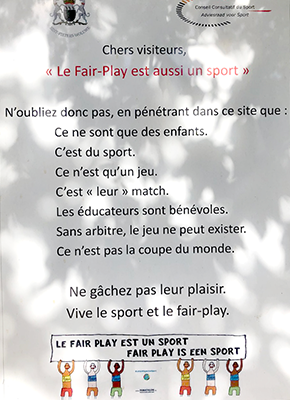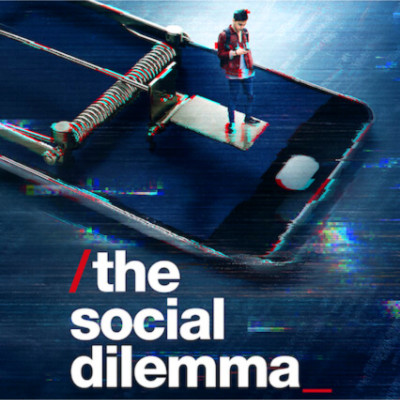Astuces, histoires, paraboles et ressources
Vous trouverez dans cette rubrique des sources d’inspiration diverses : textes, articles, vidéos, images, sons … laissez-vous porter et restez curieux !
L’ultracrépidarianisme, l’art de parler de ce qu’on ne connaît pas
Parler avec assurance de choses qu’on ne connaît pas, c’est l’ultracrépidarianisme. Explications avec le philosophe et physicien Étienne Klein.
« Je ne sais pas. » est une phrase que nous devrions réhabiliter.
Tea Consent
Copyright ©2015 Emmeline May and Blue Seat Studios
Script – Rockstar Dinosaur Pirate Princess … Animation – Rachel Brian – VO – Graham Wheeler
Consent for kids
Whether you’re looking for a consent primer to share with a friend or searching for a way to talk to your child about what it means to be in control of their own body and respect others’, look no further! This humorous and insightful book from the co-creator of the viral “Tea Consent” video is the perfect teaching tool, conversation starter, and insightful, empowering resource for educators, kids, and families everywhere.
Why Teens Turn from Parents to Peers
Daniel Siegel
Best-selling author and renowned neuropsychiatrist Daniel Siegel explains why adolescents turn to their peers and away from their parents for security, attachment, and approval.
The Teenage Brain
Daniel Siegel
Daniel Siegel debunks myths about the Teenage Brain and « raging hormones ». He discusses the changes and remodeling of the brain within the adolescent period. He asserts that people need to learn about these changes to support and meet adolescents with empathy and compassion.
Siegel outlines his « Brainstorm » approach, focusing on emotional spark, social engagement, novelty and creative exploration (ESSENCE) as important aspects during the adolescent time of development. Siegel asserts there are four key features to maintain healthy brain growth: keeping passion in your life, maintaining supportive social networks, trying new things and challenging your mind. This will not only helps adults navigate the adolescent mind to provide encouraging support for healthy development, but also support a « life of connection, meaning, equanimity and sense of purpose ».
The social Dilemma
Un documentaire à voir absolument
Netflix lance The Social Dilemma, un documentaire sur la dystopie que représentent les réseaux sociaux. Celui-ci braque la caméra sur des gens qui ont participé à créer ces immenses plateformes et qui lancent aujourd’hui un signal d’alerte : ces systèmes représentent ni plus ni moins une crise existentielle pour l’humanité.
La plupart des intervenants dans The Social Dilemma ont eux-mêmes participé à construire les machines qui mènent désormais le monde. Ils cherchent tous maintenant à tenter de contenir leur pouvoir, à limiter les dégâts. Que ces anciens de Facebook, de Twitter et d’autres ne permettent pas à leurs enfants d’utiliser les plateformes qu’ils ont aidé à concevoir en dit long.
C’est certainement un film à voir pour toute personne qui s’intéresse à ces enjeux. Nous avons tous vu, au fil des années, chacun de ces enjeux faire les manchettes. Ce documentaire les réunit tous au même endroit, et l’effet est étourdissant.
Step Inside the Circle from Fritzi Horstman on Vimeo.
Step inside the circle
Unaddressed childhood trauma changes how we respond to the world and when triggered, we make choices that sometimes have devastating consequences including domestic violence, addiction, murder and prison.
TED Talks – Why fascism is so tempting and how your data could power it
Yuval Noah Harari
In a profound talk about technology and power, author and historian Yuval Noah Harari explains the important difference between fascism and nationalism — and what the consolidation of our data means for the future of democracy. Appearing as a hologram live from Tel Aviv, Harari warns that the greatest danger that now faces liberal democracy is that the revolution in information technology will make dictatorships more efficient and capable of control. « The enemies of liberal democracy hack our feelings of fear and hate and vanity, and then use these feelings to polarize and destroy, » Harari says. « It is the responsibility of all of us to get to know our weaknesses and make sure they don’t become weapons. »
TED Talks – Sleep is a superpower
Matt Walker
TED Talks – How a handful of tech companies control billions of minds every day
Tristan Harris
A handful of people working at a handful of tech companies steer the thoughts of billions of people every day, says design thinker Tristan Harris. From Facebook notifications to Snapstreaks to YouTube autoplays, they’re all competing for one thing: your attention. Harris shares how these companies prey on our psychology for their own profit and calls for a design renaissance in which our tech instead encourages us to live out the timeline we want.
TED Talks – Everything you think you know about addiction is wrong
Johann Hari
What really causes addiction — to everything from cocaine to smart-phones? And how can we overcome it? Johann Hari has seen our current methods fail firsthand, as he has watched loved ones struggle to manage their addictions. He started to wonder why we treat addicts the way we do — and if there might be a better way. As he shares in this deeply personal talk, his questions took him around the world, and unearthed some surprising and hopeful ways of thinking about an age-old problem.
TED Talks – The walk from « no » to « yes »
William Ury
William Ury, author of « Getting to Yes, » offers an elegant, simple (but not easy) way to create agreement in even the most difficult situations — from family conflict to, perhaps, the Middle East.
Encyclopédie du savoir relatif et absolu
Vaut-il mieux avoir un squelette à l’intérieur ou à l’extérieur du corps ?
Lorsque le squelette est à l’extérieur, il forme une carrosserie protectrice. La chair est à l’abri des dangers extérieurs mais elle devient flasque et presque liquide. Et lorsqu’une pointe arrive à passer malgré toute le carapace, les dégâts sont irrémédiables.
70ème anniversaire de la Déclaration universelle des Droits de l’Homme
Le 10 décembre 1948, 58 États signèrent la Déclaration universelle des Droits de l’Homme. Tout au long des prochains temps l’UNESCO entend marquer l’évènement. Son Mandat et toute son Histoire lui confèrent ici un rôle majeur dont elle témoigne au travers de multiples contributions. Selon les mots employés par Monsieur Robert Badinter qui a conclu une heure d’échanges, l’UNESCO doit rester « un Foyer ardent » pour continuer de servir « les Droits de l’Homme » à l’image de tous ceux qui les défendent et qu’il a salués ainsi : « longue vie et honneur à tous ces militants car ils sont le sel de la terre ».
Une autorité juste
L’autorité, aujourd’hui en crise, a mauvaise presse et devient la grande “méconnaissance” de notre époque. Souvent confondue avec la répression, l’autoritarisme, l’abus de pouvoir voire même la tyrannie, elle fait alors peur aux parents. Ne comprenant pas non plus réellement les bénéfices que tireront leurs enfants des limites posées, ils butent sur la légitimité de leur autorité.
Oui, mais…
Le triangle dramatique ou comment sortir de relations toxiques ?
Stephen B. Karpman a mis en évidence un modèle de détection et d’analyse de ces jeux psychologiques appelé « Le triangle dramatique » qui permet de décrypter deux des jeux les plus célèbres : le « sans toi » et le « oui mais ».

Le Fair-Play est aussi un sport
N’oubliez pas lorsque vous accompagnez vos enfants sur le bord d’un terrain de sport que …
Ce ne sont que des enfants.
C’est du sport.
Ce n’est qu’un jeu.
C’est “leur” match.
Les éducateurs sont bénévoles.
Sans arbitre, le jeu ne peut exister.
Ce n’est pas la coupe du monde.
Ne gâchez par leur plaisir !
Campagne « Children are watching »
« Les enfants ont du mal à nous obéir, mais aucun à nous imiter.
Ils suivent les exemples mieux qu’ils n’écoutent les conseils. »
Etre parent, un rôle modélisant.




